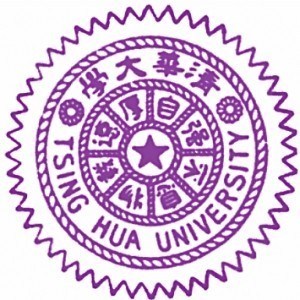Photos of university / #university_fudan
Fudan University’s Chinese Economy undergraduate program offers students an in-depth understanding of the multifaceted economic development of China. This comprehensive program combines rigorous coursework in economics, history, politics, and social sciences, providing a multidisciplinary perspective on China's rapid growth and evolving economic landscape. Students will explore key areas such as macroeconomic policies, market reforms, international trade, financial systems, and regional development strategies, enabling them to analyze and interpret China's economic phenomena critically. The curriculum emphasizes both theoretical foundations and practical applications, preparing graduates for careers in government agencies, financial institutions, international organizations, and research institutes. Through a combination of lectures, seminars, case studies, and field studies, students gain hands-on experience and develop analytical skills essential for understanding complex economic issues. The program also encourages international exchange and cooperation, offering opportunities to study abroad and participate in internships to enhance cross-cultural communication skills and global economic awareness. Faculty members are distinguished experts in Chinese economic research, ensuring students receive high-quality instruction grounded in the latest academic developments. Alumni of the program have gone on to work in prominent organizations, contributing to China's economic policy-making, consultancy, and academia. Graduates will be equipped with a solid foundation in economic theory and practical insights specific to China, enabling them to play vital roles in shaping China's future economic policies and integration into the global economy. Whether students aim for a career in economic analysis, policy formulation, or further academic research, this program provides the essential knowledge and skills to succeed in the dynamic field of Chinese economics.
1st Semester
- Chinese Economy
- New Political Economics in China
- Microeconomics
- International Finance
- Foreign Direct Investment in Transition Economy
- Topics on Development Economics
- Advanced Topics on Chinese Economy
- Academic Writing
- China's Taxation System and Fiscal Policy
2nd Semester
- Monographic Study on Chinese Finance
- China's Reform and Opening-up
- Environmental and Energy Economics: Approaches and Applications in China
- China's Financial System
- Applied Econometrics
- World Economy and China
- Urbanization in China
- Chinese Language and Culture
- Macroeconomics
- Political Economy in East Asia
- Industrial Organization
- Corporate Finance
3rd Semester
- Doing Business in China
- Chinese Foreign Trade
- Capital Markets in China
- Social Security System and Its Reform in China
4th Semester
- Thesis Writing
Requirements
- Completion of a four-year bachelor’s or higher degree program from an accredited college or university
- TOEFL: 550+ (or IBT 90+); or IELTS: 6.5+
- Official copy of transcript
- Two letters of recommendation
- Resume
- Statement of purpose
- Writing sample
- A copy of passport
Scholarships
- Chinese government scholarship
- Shanghai Government Scholarship
- Fudan New Student Scholarship
The program in Chinese Economy at Fudan University is a comprehensive interdisciplinary course designed to provide students with an in-depth understanding of China's economic development, policies, and institutional structures. It aims to equip students with analytical skills and a thorough knowledge of both the historical and contemporary economic landscape of China. The curriculum typically includes courses in macroeconomics, microeconomics, economic history, political economy, international trade and finance, as well as specialized modules focusing on Chinese fiscal policies, market reforms, and regional development strategies. Students are encouraged to engage in quantitative methods, economic modeling, and policy analysis to understand China’s unique economic environment.
Fudan University, being one of China’s leading institutions, emphasizes research-led teaching and international perspectives within the Chinese Economy program. It collaborates extensively with government agencies, research institutions, and international organizations, offering students opportunities for practical exposure through internships, seminars, and conferences. The program often includes a combination of lectures, case studies, and field projects aimed at fostering critical thinking and problem-solving skills related to China's economic challenges and opportunities.
Moreover, the program seeks to prepare graduates for careers in government agencies, financial institutions, multinational corporations, research institutions, and international organizations that operate within or focus on China's economy. Graduates are expected to be proficient in economic analysis, policy formulation, and cross-cultural communication, enabling them to contribute effectively to the global understanding of Chinese economic development. The faculty comprises renowned economists and researchers specializing in Chinese economy, many of whom are actively involved in policy advisory roles.
Admission criteria generally require applicants to demonstrate a strong academic background, proficiency in English or Chinese, and an interest in China's economic issues. The program duration is usually four years for undergraduate studies or one to two years for master's programs, depending on the degree type. The university often provides scholarships and financial incentives to outstanding students, encouraging international participation and fostering a diverse academic community. Ultimately, the Chinese Economy program at Fudan University aims to cultivate innovative thinkers and leaders who can analyze and shape the future economic pathways of China and its integration into the global economy.

